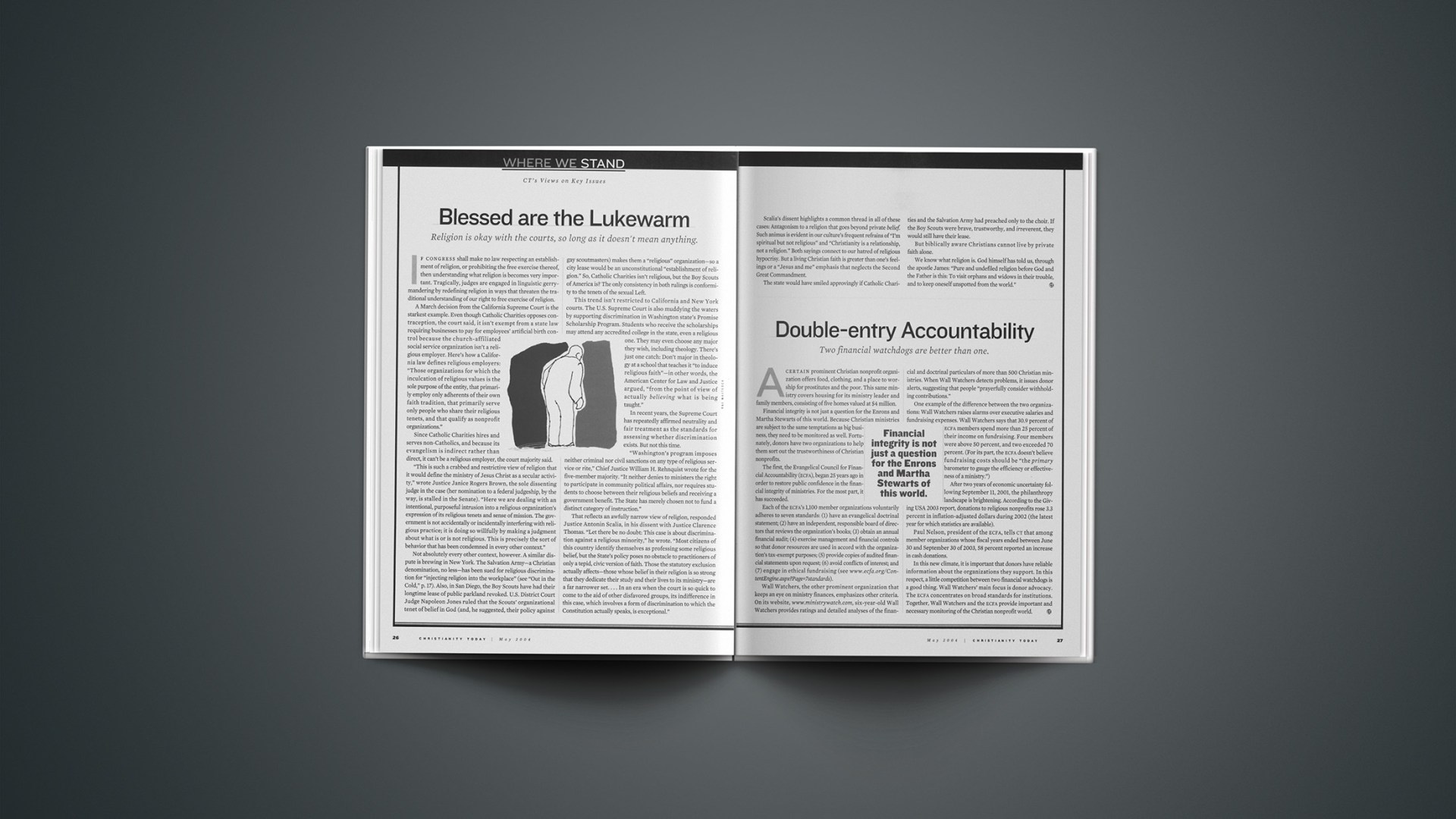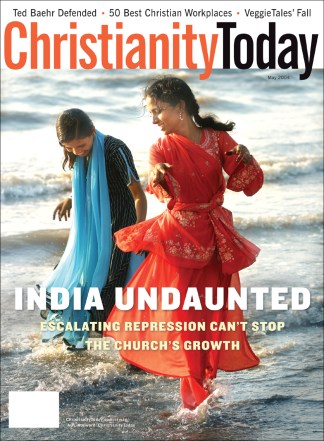A certain prominent Christian nonprofit organization offers food, clothing, and a place to worship for prostitutes and the poor. This same ministry covers housing for its ministry leader and family members, consisting of five homes valued at million.
Financial integrity is not just a question for the Enrons and Martha Stewarts of this world. Because Christian ministries are subject to the same temptations as big business, they need to be monitored as well. Fortunately, donors have two organizations to help them sort out the trustworthiness of Christian nonprofits.
The first, the Evangelical Council for Financial Accountability (ECFA), began 25 years ago in order to restore public confidence in the financial integrity of ministries. For the most part, it has succeeded.
Financial integrity is not just a question for the Enrons and Martha Stewarts of this world.
Each of the ECFA’s 1,100 member organizations voluntarily adheres to seven standards: (1) have an evangelical doctrinal statement; (2) have an independent, responsible board of directors that reviews the organization’s books; (3) obtain an annual financial audit; (4) exercise management and financial controls so that donor resources are used in accord with the organization’s tax-exempt purposes; (5) provide copies of audited financial statements upon request; (6) avoid conflicts of interest; and (7) engage in ethical fundraising.
Wall Watchers, the other prominent organization that keeps an eye on ministry finances, emphasizes other criteria. On its website six-year-old Wall Watchers provides ratings and detailed analyses of the financial and doctrinal particulars of more than 500 Christian ministries. When Wall Watchers detects problems, it issues donor alerts, suggesting that people “prayerfully consider withholding contributions.”
One example of the difference between the two organizations: Wall Watchers raises alarms over executive salaries and fundraising expenses. Wall Watchers says that 30.9 percent of ECFA members spend more than 25 percent of their income on fundraising. Four members were above 50 percent, and two exceeded 70 percent. (For its part, the ECFA doesn’t believe fundraising costs should be “the primary barometer to gauge the efficiency or effectiveness of a ministry.”)
After two years of economic uncertainty following September 11, 2001, the philanthropy landscape is brightening. According to the Giving USA 2003 report, donations to religious nonprofits rose 3.3 percent in inflation-adjusted dollars during 2002 (the latest year for which statistics are available).
Paul Nelson, president of the ECFA, tells CT that among member organizations whose fiscal years ended between June 30 and September 30 of 2003, 58 percent reported an increase in cash donations.
In this new climate, it is important that donors have reliable information about the organizations they support. In this respect, a little competition between two financial watchdogs is a good thing. Wall Watchers’ main focus is donor advocacy. The ECFA concentrates on broad standards for institutions. Together, Wall Watchers and the ECFA provide important and necessary monitoring of the Christian nonprofit world.
Copyright © 2004 Christianity Today. Click for reprint information.
Related Elsewhere:
More information about the ECFA and Wall Watchers can be found on those ministries’ web sites.










